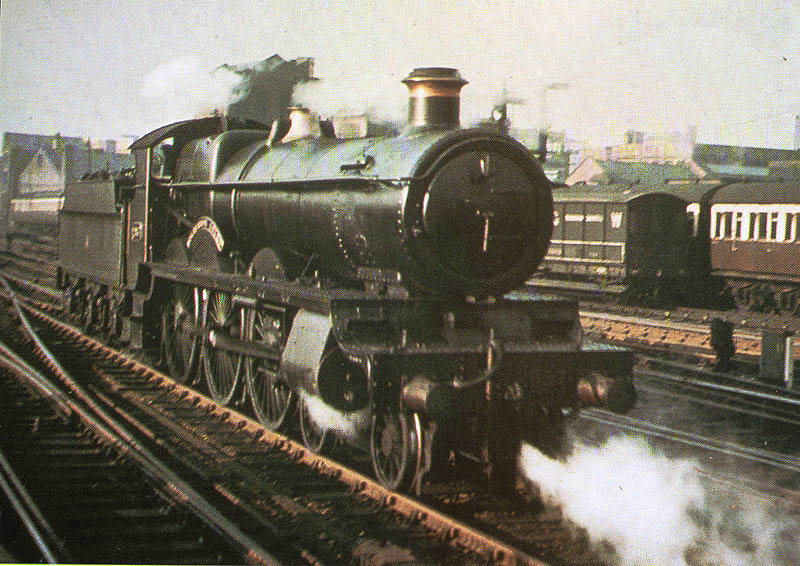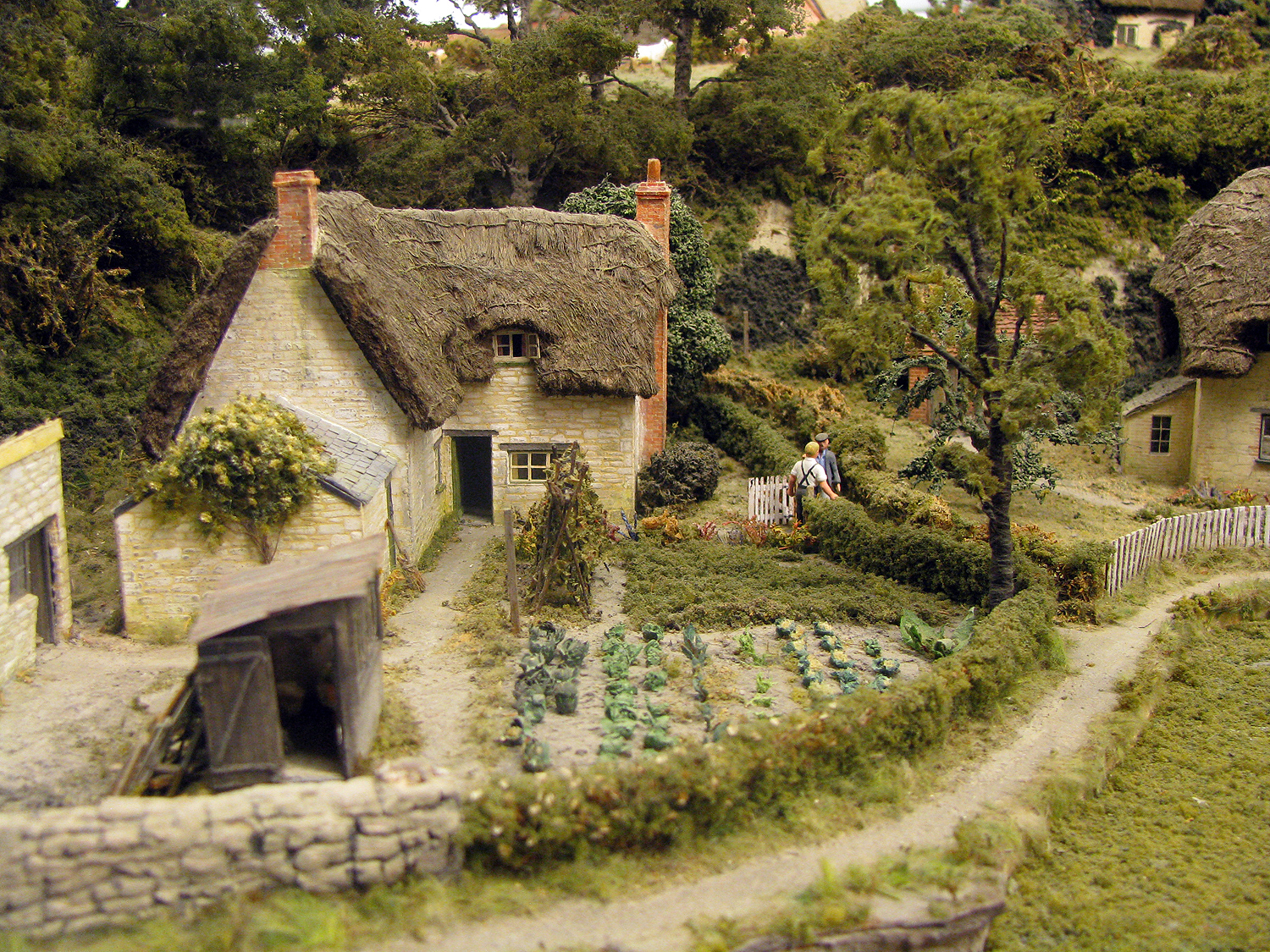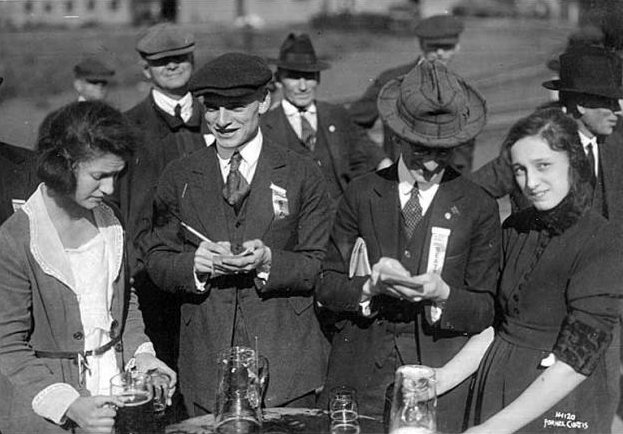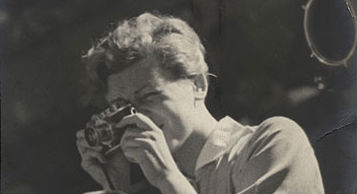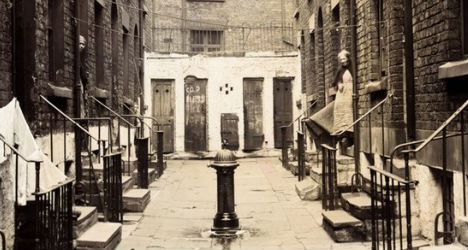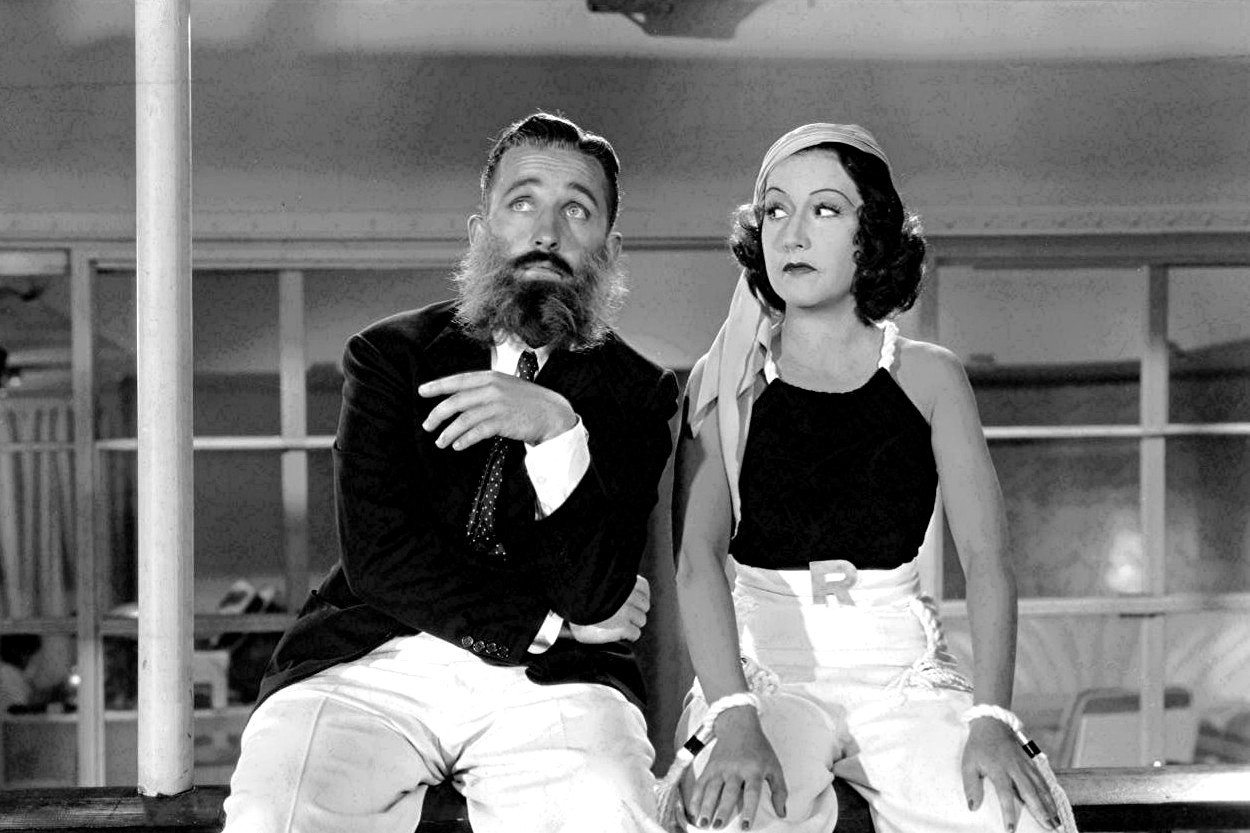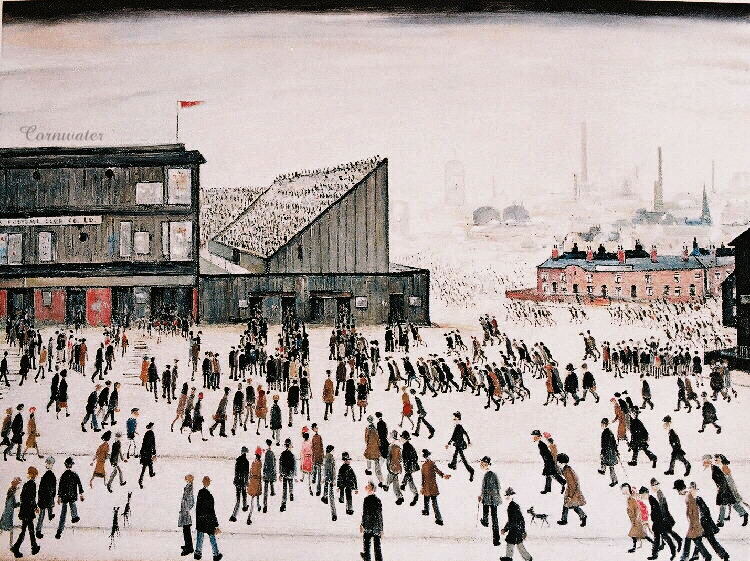It has always bewildered me that Great Western Trains – the private franchise running services from London to the West of England and Wales – has never availed itself of its astonishing aesthetic inheritance. Perhaps there are copyright issues – I don’t know, or they wanted to make their own modern mark. But at any…
Category: 1860-1940
A Sudden Sense of Home: the Pendon Museum, Oxfordshire
Heft is a shepherd’s term: a herd of sheep learns their heft, their territory, the boundaries within which they are to spend their lives, and pass that knowledge down from ewes to rams. In his Everytown, Julian Baggini found that it was the same for humans. We too have our place and our people. The only…
The Hidden Violence of Smog
They cleaned Edinburgh’s buildings many years ago. The odd notable exception, such as that between India Buildings and Edinburgh Central Library, on the difficult turn between Victoria Street and George IV Bridge, only highlights how much has been done. We’re used to them anyway. The eye treats them as scratches in the record and skips…
George Bruce, Poetry and Perceptions of Decline
Yesterday afternoon, I found myself at the Scottish Poetry Library listening to the poems of George Bruce. An interesting man, Bruce: he lived long enough to be offered a contract by Herbert Chapman at Arsenal, to be a pioneer BBC radio producer and to launch arts television in Scotland. He was fluent in Doric…
Gerda Taro and the Spanish Civil War
The faces of the friends you were meant to have, but were born too late to meet, gaze warmly at you from old photographs. Outside, there’s nothing but grey skies and traffic. On the South Bank of the Thames stands a memorial to the British volunteers who went to fight for the Republic in the…
Alan Blumlein, Twentieth Century British Hero
When we describe someone as “forgottenâ€, we generally mean that they’ve fallen off the publishing schedules for a decade or two. No more than that: it’s publishing’s survival as a career choice for the British upper middle classes that’s made it possible for a James Lees-Milne to stay on Waterstones’ shelves while an Alan Blumlein…
The Great Victorian Masturbation Panic
Anyone with an acquaintance with Victorian history as it’s been written since the late 1960s will be familiar with the idea of the Great Victorian Masturbation Panic. For reasons unknown, we are told, our nineteenth century forebears got it into their heads that masturbation was harmful – even fatal given time – and that they…
Anything Goes: Meeting Cole Porter in the London Road
The road outside the cinema was busy, dualled, and on these wet nights its blacktop dazzled and fizzed. British filmgoing was not quite at the end of its VHS-inspired sag, but it wouldn’t be long, and the buildings on either side of the Odeon were empty and derelict respectively. White-socked mullets and blousons smoked in…
If Baby I’m the Bottom: Bad Adaptations of Cole Porter’s “You’re the Top”
Twenty-two years after “Anything Goes” premiered on Broadway, the first film remake of Kingsley Amis’s comic novel “Lucky Jim” limped into damp cinemas up and down the length of this little island we call home. He wrote about it to Philip Larkin: In public, I am all smiles about this, but in private, ah ha…
David Hockney and L.S. Lowry: Two northern artists in their time
In the 1970s, David Hockney and L.S. Lowry were the artists children had heard of. Hockney’s modernity, bright colours and light touch appealed to schoolteachers, and Lowry – Lowry, of course, had been the subject of this memorable, kindly pop song: I’d be grateful to Hockney, later on, both for his enthusiasm for new…
The Ghosts of the R101
The destruction of the airship R101 on its maiden flight on 5 October 1930 ended British dreams of linking the empire with a fleet of luxury hotels in the clouds. It ended something else, too: it ended Bedfordshire. I grew up with the great airship hangars at Cardington visible from my bedroom window, and the…
The Stockbridge Colonies: An idea whose time has come again?
In the end, all we wanted was somewhere safe for the children to grow up. What we got was quite different: towerblocks, and tarmacced playgrounds studded with broken glass, and irregular bus services that took an hour to get anywhere worthwhile. Silence without warmth in the afternoon, and shouting at night. It’s not controversial…
